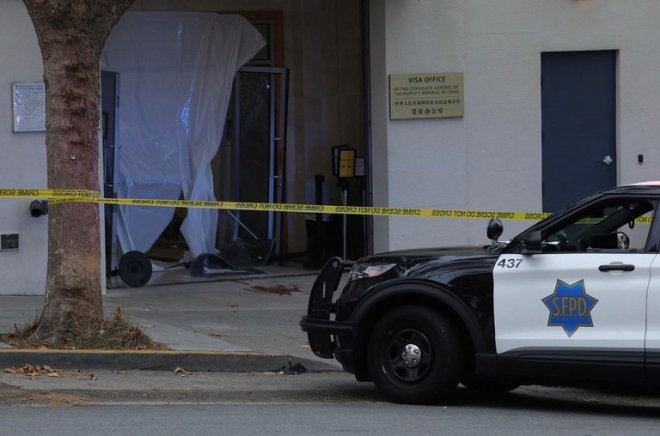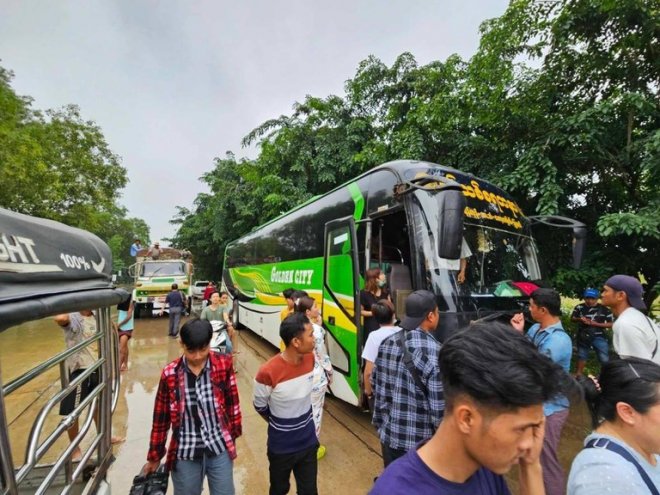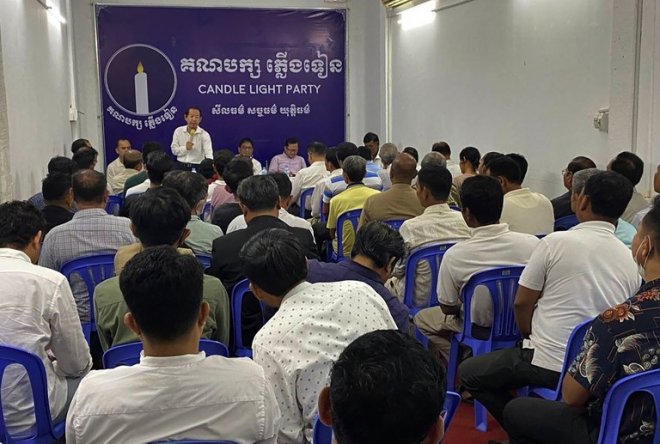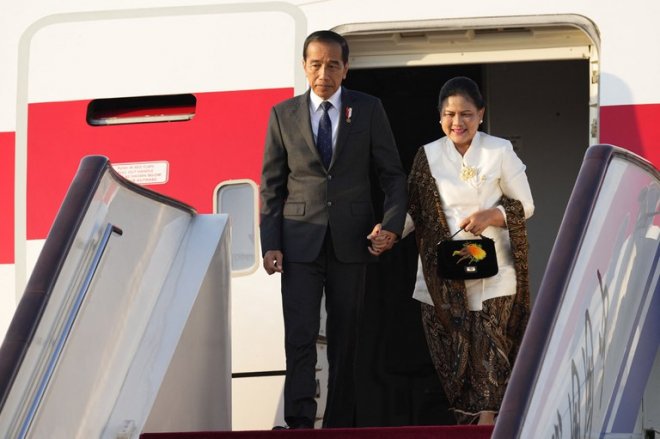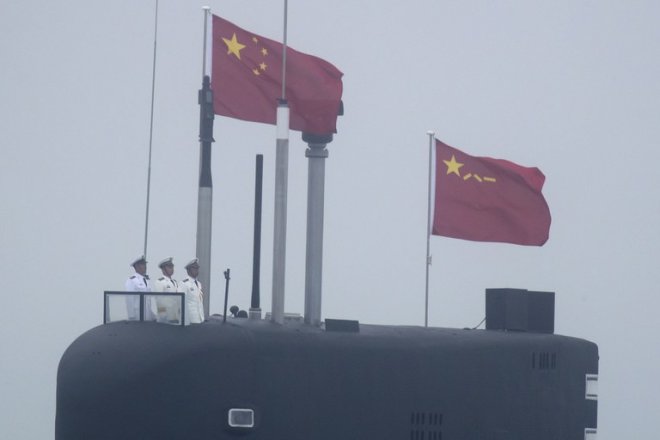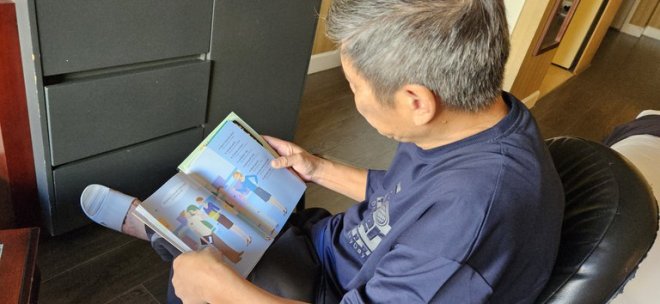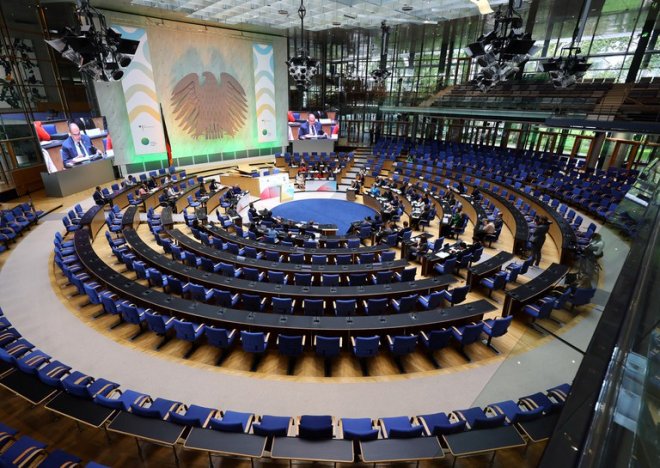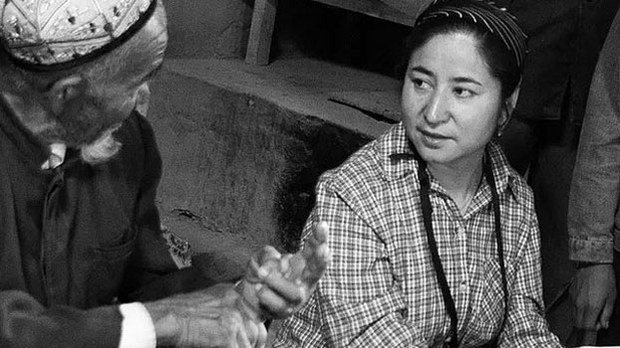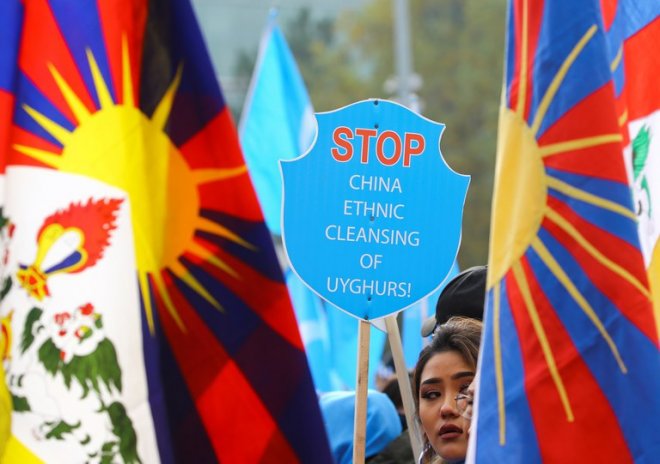Lao government seeks to rein in external debt by cutting new projects
The Lao government has come up with a plan to try to reduce the country’s crushing external debt this year by eliminating investments in new state projects that are not profitable and by inspecting out-of-scope projects that will not generate tax revenue, though few details about the plan are known.
Central government officials made the decision during their second meeting of the year on Jan. 20, but they did not release any statements afterwards about what they discussed.
The move comes as the landlocked Southeast Asian country tackles one of its worst economic crises in decades, with inflation surging to nearly 40 percent, and a skyrocketing debt crushing its finances and pushing it to the brink of default.
Laos’ external debt was about U.S.$14.5 billion in 2022, or 89% of the country’s gross domestic product, according to a World Bank estimate. Under the plan, the Lao government wants to reduce this to 64.5% of GDP this year.
“The government doesn’t have the budget to pay its debt, and each province is asking for a budget to pay off external debt,” an official from the Ministry of Planning and Investment told RFA on Wednesday. “All projects in the future have to be suited for the income they have, and they cannot borrow money anymore.”
Officials will ditch new projects that are not profitable, such as road construction for military use, irrigation projects in areas that don’t need them, unnecessary embankment construction along rivers, and some training programs for state employees, said the official, who declined to give his name so he could speak freely.
An official from the Ministry of Finance said the country’s 17 provinces and Vientiane municipality have allocated as many as 300 projects that fall outside the plan, for which they still have to pay off debt.
Most of these projects are short of money to operate and will be reviewed thoroughly before they are allowed to continue, he said.
Corruption remains a problem
But most Laotians and international organizations doubt that the central government will reach its debt goal unless it decisively cracks down on corruption, which siphons public money away from public purposes and into the pockets of private individuals.
“The government should crack down corruption,” said an intellectual from Champassack province in southwestern Laos who declined to be named. “This is important to solve the debt problem. There is widespread corruption among state employees on whom authorities have been unable to crack down, but by law they have to do that.”
Another Laotian from Vientiane said the government should be stricter about allocating funds to state projects, given that all projects must be approved by the National Assembly and provincial councils before they are implemented.
A Laos-based official from the Asian Development Bank, who refused to be identified because he is not authorized to speak to the media, agreed that the government’s plan will be difficult to implement.
Instead, the government should step up its control of the national budget and ensure that investment and operational funds are transparent with no leakages, he said.
The official urged the government not to borrow any more money from foreign or domestic banks so that debt levels do not climb higher than they already are.
Translated by Sidney Khotpanya for RFA Lao. Written in English by Roseanne Gerin. Edited by Malcolm Foster.
[圖擷取自網路,如有疑問請私訊]
Central government officials made the decision during their second meeting of the year on Jan. 20, but they did not release any statements afterwards about what they discussed.
The move comes as the landlocked Southeast Asian country tackles one of its worst economic crises in decades, with inflation surging to nearly 40 percent, and a skyrocketing debt crushing its finances and pushing it to the brink of default.
Laos’ external debt was about U.S.$14.5 billion in 2022, or 89% of the country’s gross domestic product, according to a World Bank estimate. Under the plan, the Lao government wants to reduce this to 64.5% of GDP this year.
“The government doesn’t have the budget to pay its debt, and each province is asking for a budget to pay off external debt,” an official from the Ministry of Planning and Investment told RFA on Wednesday. “All projects in the future have to be suited for the income they have, and they cannot borrow money anymore.”
Officials will ditch new projects that are not profitable, such as road construction for military use, irrigation projects in areas that don’t need them, unnecessary embankment construction along rivers, and some training programs for state employees, said the official, who declined to give his name so he could speak freely.
An official from the Ministry of Finance said the country’s 17 provinces and Vientiane municipality have allocated as many as 300 projects that fall outside the plan, for which they still have to pay off debt.
Most of these projects are short of money to operate and will be reviewed thoroughly before they are allowed to continue, he said.
Corruption remains a problem
But most Laotians and international organizations doubt that the central government will reach its debt goal unless it decisively cracks down on corruption, which siphons public money away from public purposes and into the pockets of private individuals.
“The government should crack down corruption,” said an intellectual from Champassack province in southwestern Laos who declined to be named. “This is important to solve the debt problem. There is widespread corruption among state employees on whom authorities have been unable to crack down, but by law they have to do that.”
Another Laotian from Vientiane said the government should be stricter about allocating funds to state projects, given that all projects must be approved by the National Assembly and provincial councils before they are implemented.
A Laos-based official from the Asian Development Bank, who refused to be identified because he is not authorized to speak to the media, agreed that the government’s plan will be difficult to implement.
Instead, the government should step up its control of the national budget and ensure that investment and operational funds are transparent with no leakages, he said.
The official urged the government not to borrow any more money from foreign or domestic banks so that debt levels do not climb higher than they already are.
Translated by Sidney Khotpanya for RFA Lao. Written in English by Roseanne Gerin. Edited by Malcolm Foster.
[圖擷取自網路,如有疑問請私訊]
|
本篇 |
不想錯過? 請追蹤FB專頁! |
| 喜歡這篇嗎?快分享吧! |
相關文章
AsianNewsCast








